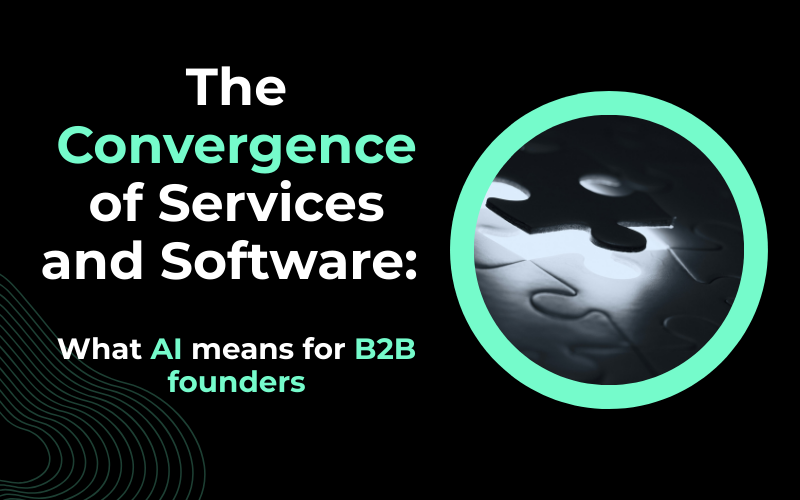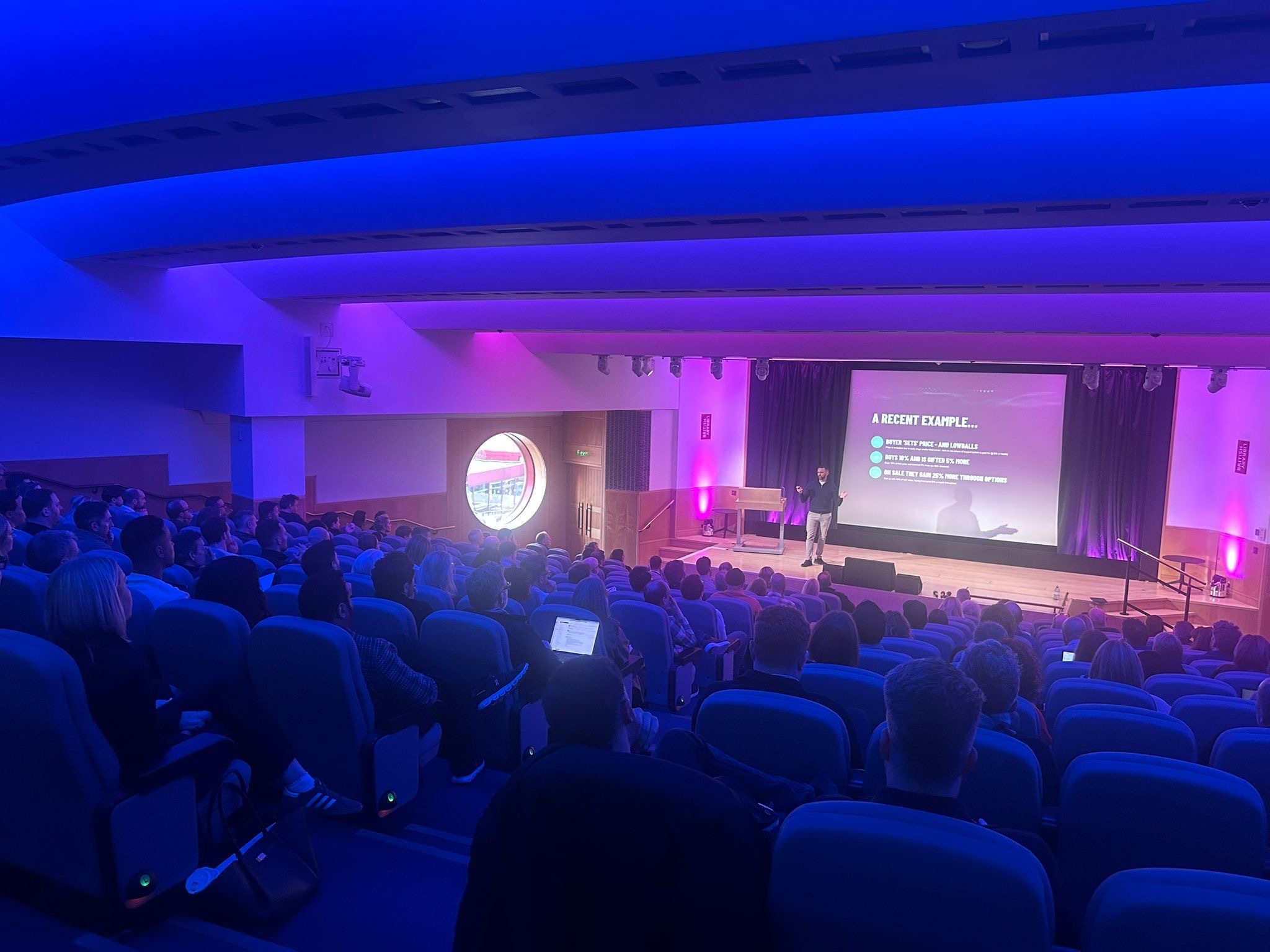In today’s rapidly evolving business environment, many agencies find themselves struggling to achieve consistent growth. They invest in various marketing and sales strategies, yet the results don’t match the effort. The reason? Generic, one-size-fits-all plans no longer work. Success in today’s competitive landscape requires precision, specialization, and a relentless focus on your Ideal Customer Profile (ICP).
Generic Advice vs. Specialist Success
For years, agencies have leaned on broad strategies:
- “Post more content.”
- “Attend more networking events.”
- “Run ads to cast a wide net.”
While these tactics can work in some contexts, they’re not enough to stand out in a saturated market. Generic advice tends to dilute your message, making it harder to resonate with anyone in particular. In contrast, specialists — agencies that focus deeply on a specific niche — are winning. Why? Because they understand their audience at a granular level and position themselves as the go-to experts.
The Key to Success: Understanding Your ICP
Your Ideal Customer Profile (ICP) is the foundation of a winning go-to-market strategy. It defines who you’re selling to, their unique pain points, and how your agency’s solutions can solve their challenges. Without a clearly defined ICP, your sales and marketing efforts are likely scattered, resulting in:
- Low-quality leads
- Mismatched clients
- Wasted time and resources
To build a strong ICP, ask questions like:
- Who benefits most from our services?
- What are their biggest pain points and challenges?
- What language do they use to describe their problems?
- What solutions are they currently using, and where are those solutions falling short? To help you answer these questions effectively, we’ve created a free ICP interview template. Click the button at the bottom of this article to download it and start refining your customer insights today.?
The Power of Laser Focus on a Specific Sector
Once you’ve defined your ICP, the next step is to narrow your focus to a specific sector or industry. Agencies that try to be everything to everyone often end up being nothing to anyone. Instead, position yourself as a specialist in solving the unique problems of one industry.
For example:
- A digital marketing agency specializing in SaaS startups.
- A design firm focused on e-commerce brands.
- A PR agency working exclusively with healthcare companies.
This level of specialization allows you to:
- Build deeper expertise.
- Develop case studies that resonate with similar prospects.
- Create tailored marketing messages that speak directly to your audience’s needs.
Allbound Marketing: The Modern Approach to Outreach
In the modern marketing landscape, an allbound strategy is the secret weapon that seamlessly integrates inbound and outbound methods. When executed correctly, it not only generates high-quality leads but also builds stronger, more lasting relationships with your Ideal Customer Profile (ICP). Let’s dive deeper into what makes allbound marketing so effective and how you can implement it.
1. Aligning Sales and Marketing for Allbound Success One of the biggest hurdles in executing an allbound strategy is the disconnect between sales and marketing teams. Aligning these departments is essential to create a seamless experience for your prospects. Here’s how:
- Shared Goals: Establish unified objectives that both teams work towards, such as target revenue or lead quality metrics.
- Collaborative Campaigns: Involve sales in the planning stages of marketing campaigns to ensure their insights on customer needs and objections are incorporated.
- Feedback Loops: Implement regular meetings where sales provides feedback on lead quality and marketing adjusts strategies accordingly.
This alignment ensures consistent messaging and a smoother handoff from marketing to sales, significantly improving the buyer’s journey.
2. Inbound Marketing: Building Trust Through Value Inbound marketing attracts your ICP by offering them something valuable. It’s not about hard selling; it’s about demonstrating your expertise and building trust. Key components include:
- Content Marketing: Create blogs, whitepapers, eBooks, and guides that solve specific pain points for your audience. Use SEO strategies to ensure this content reaches the right people.
- Webinars and Events: Host sessions on topics that matter most to your ICP. These events can position your agency as a thought leader.
- Lead Magnets: Develop downloadable resources like templates, checklists, or industry reports that entice your audience to share their contact information.
Your inbound efforts should focus on nurturing leads and establishing authority so your ICP feels confident in reaching out when they’re ready to engage.
3. Outbound Marketing: Targeted and Proactive Engagement While inbound brings leads to you, outbound marketing ensures you’re proactively reaching your ICP. It’s about being precise and personalized:
- Email Campaigns: Personalize every email based on the recipient’s role, industry, and known challenges. Avoid generic messaging.
- Social Selling: Use LinkedIn and other platforms to directly engage with potential clients. Share insights, comment on their posts, and create meaningful connections.
- Cold Outreach: Equip your team with a clear understanding of your ICP’s pain points and your unique value proposition. Cold calls and tailored emails are still powerful when executed thoughtfully.
Outbound strategies require diligent research and personalization. When your outreach feels tailored, it’s far more likely to resonate.
4. CRM-Centered Integration: The Heart of Allbound Marketing A robust CRM system is critical for tying inbound and outbound efforts together. Here’s how to maximize its potential:
- Lead Tracking and Scoring: Monitor every interaction—from downloads to email opens—to understand lead behavior and prioritize follow-ups.
- Automated Nurturing: Set up drip campaigns that send targeted content to prospects based on their stage in the buyer’s journey.
- Analytics and Insights: Use data to identify which strategies are working and where adjustments are needed. Continual refinement is key to success.
5. Elevating the Buyer’s Experience with Personalization Allbound strategies thrive on creating personalized experiences at every touchpoint. Tailor your approach based on:
- Behavioral Data: Adjust messaging based on how prospects interact with your website, emails, or content.
- Firmographic Information: Use company size, industry, and location to refine outreach strategies.
- Buyer Journey Stages: Ensure the content and interactions are relevant to whether a prospect is in the awareness, consideration, or decision stage.
Combining Forces: The Allbound Advantage
An allbound strategy ensures you’re covering every angle. Your inbound efforts lay the groundwork by building trust and attracting attention, while your outbound efforts actively convert prospects into clients. When integrated through a CRM, these methods work harmoniously, providing a seamless experience for your ICP and ensuring no opportunity is overlooked.
By adopting this comprehensive approach, your agency will not only attract high-quality leads but also foster relationships that translate into long-term business growth.
In the modern marketing landscape, an allbound strategy is the secret weapon that seamlessly integrates inbound and outbound methods. When executed correctly, it not only generates high-quality leads but also builds stronger, more lasting relationships with your Ideal Customer Profile (ICP). Let’s dive deeper into what makes allbound marketing so effective and how you can implement it.
Why This Approach Works
A specialized, ICP-driven strategy ensures every dollar and hour spent on sales and marketing is maximized. When you deeply understand your audience and focus on solving their specific problems, you’re not just another agency — you’re the agency they trust to deliver results. By combining this laser focus with an allbound approach, you create a system that attracts high-quality leads, nurtures relationships, and converts prospects into loyal clients.



